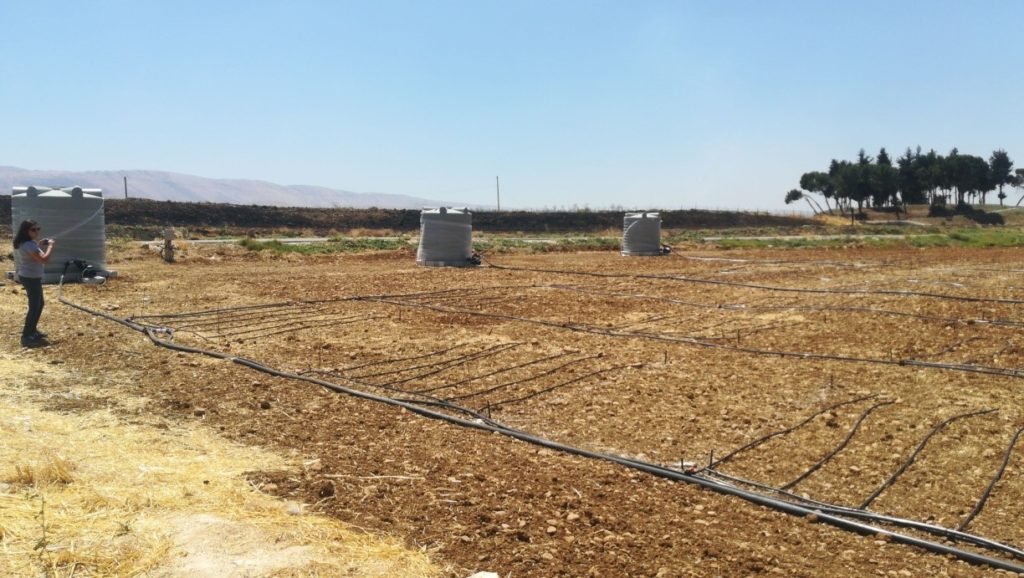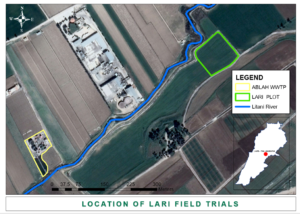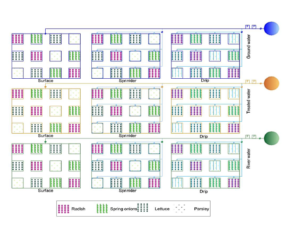ReWater MENA project kicks off water reuse field trials in Lebanon: Results will inform the formulation of reuse norms and demonstrate the effectiveness of on-farm practices for safe water reuse

In July 2019, the Lebanese Agricultural Research Institute (LARI), a key partner of the ReWater MENA project in Lebanon, kicked off a two year-field trial in the Bekaa valley. Established at LARI’s Tel Amara station in central Bekaa, on the right bank of the Litani River, this pilot will serve to assess the health and environmental risks associated with irrigating fresh vegetables from different water sources of varying quality.
The pilot is organized in two trials. The first trial is divided into three plots fed by three irrigation networks each supplied by water sources of different quality: groundwater representing a clean water source, the Litani River known to be highly polluted at this level of the Bekaa, and treated wastewater coming from Ablah wastewater treatment plant, a well operated municipal plant located only a few kilometers away from LARI’s fields. Each plot will be planted with four crops that are widely cultivated in the Bekaa: Radish, spring onions, lettuce and parsley, four vegetables typically used fresh in many Lebanese salads (the main ingredients of a good “fattouch”). In each plot, these different crops will be irrigated under three irrigation systems: surface, sprinkler and drip, which brings the number of sub-plots to 108. For both growing seasons, soil, crop and water samples will be taken throughout the irrigation season to test the effects of water quality and irrigation methods on food safety, productivity and environment. For the second trial, LARI will test the impact of withdrawing irrigation prior to harvest considering that this practice can reduce the level of pollutants on crops and soil.

In the following year, LARI will replicate the same trials with testing additional factors such as the use of different filtering techniques.
Results from LARI’s field trials will also inform the formulation of norms on water reuse in agriculture, a recent endeavour led by LIBNOR, the Lebanese Standards Institution acting under the Ministry of Industry. In September 2019, LIBNOR will hold its first committee meeting, where different non-governmental and governmental stakeholders, including the Ministry of Agriculture and the Ministry of Energy and Water, will form a multi-disciplinary and multi-stakeholders group to adapt the international ISO norms on water reuse to the Lebanese contexts.

The ReWater MENA project together with LARI is closely collaborating with LIBNOR and will play an active role in the committee. IWMI and LARI’s experts will participate to the scientific discussions and will bring the results from the field trials as well as the lessons learnt at international and national levels. The ReWater MENA Lebanese team will guide the committee in engaging the most informed stakeholders, including technicians (WWTPs operators), municipalities and farmers.

